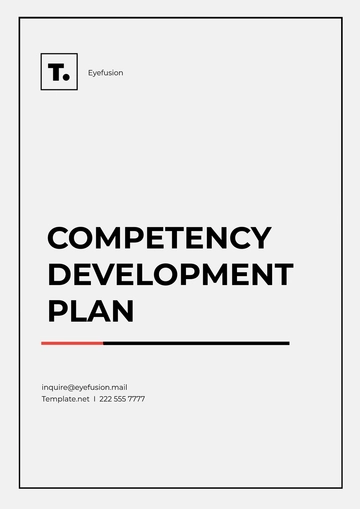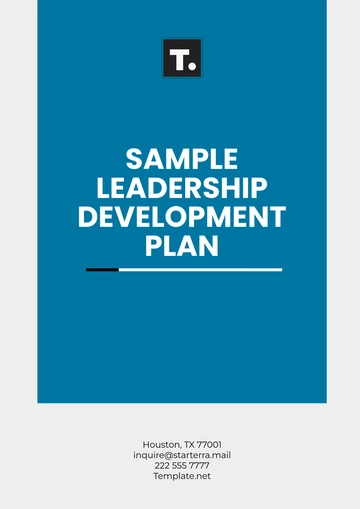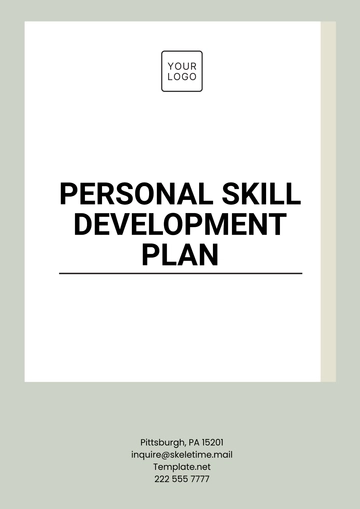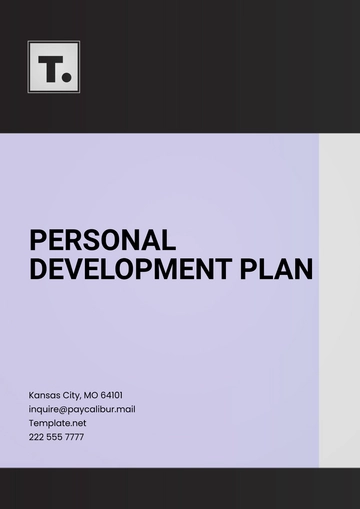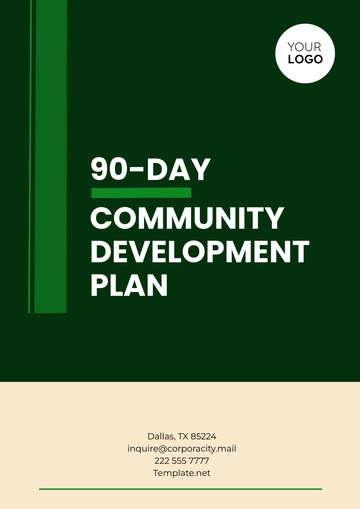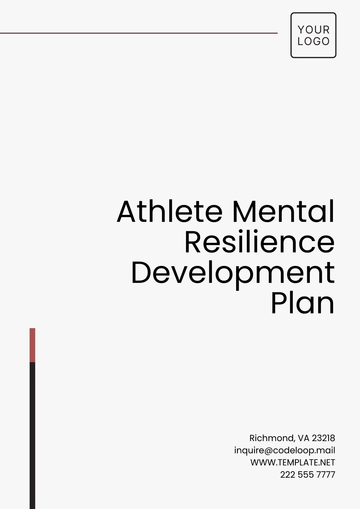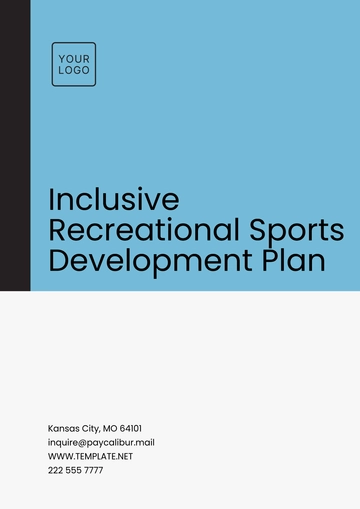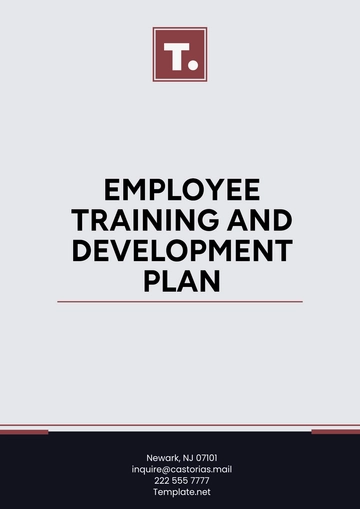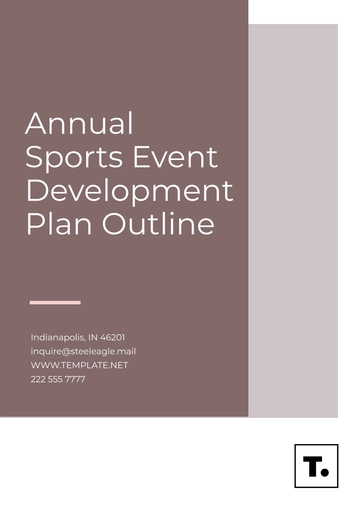Free Volunteer Engagement Sports Development Plan
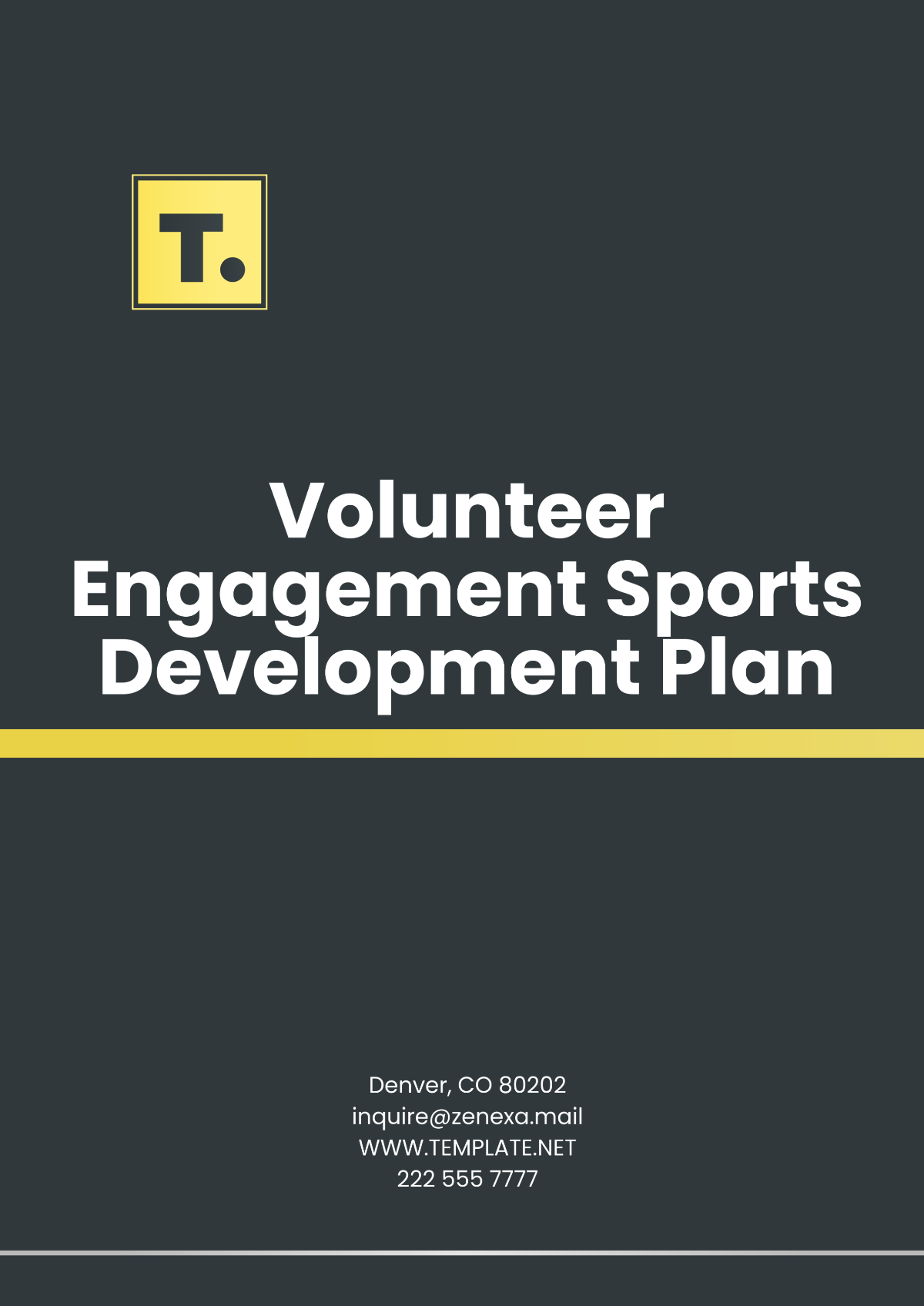
Prepared by: [Your Name]
Date: May 25, 2050
1. Introduction
A. Purpose and Objectives
The purpose of this Volunteer Engagement Sports Development Plan is to engage a diverse group of volunteers to support the development and expansion of sports programs within our community. Volunteers will play a crucial role in facilitating youth programs, assisting coaches, coordinating events, and engaging with the local community. Our objective is to create a sustainable volunteer program that fosters a positive, impactful, and inclusive sports culture.
B. Scope
This plan applies to volunteers supporting all youth sports programs, including soccer, basketball, and tennis, as well as special events such as tournaments and charity runs. We will engage volunteers from various demographics, ensuring a diverse pool with various skill sets to support our mission of fostering youth participation in sports.
2. Needs Assessment
A. Current State Analysis
The current volunteer program has been successful in attracting a base of volunteers for seasonal events but lacks depth in long-term engagement and skill development. Volunteer retention is lower than desired, particularly in event coordination and coaching roles. There is also a need for more structured training and support for volunteers.
B. Stakeholder Input
Feedback from coaches indicates that volunteers are not always equipped with sufficient training to perform their roles efficiently, which leads to a decrease in satisfaction. Athletes have expressed that consistent volunteer engagement would improve their overall experience at events. Current volunteers have requested more recognition and opportunities for skill development.
3. Volunteer Roles and Responsibilities
A. Role Descriptions
Volunteers will serve in a variety of roles:
Coaching Assistants: Help lead practice sessions, assist in player development, and ensure safety during training.
Event Coordinators: Plan logistics for sports events, including registration, schedules, and coordination with local vendors.
Team Managers: Manage team rosters, coordinate transportation for away games, and ensure that athletes have the necessary equipment.
Community Outreach Volunteers: Promote sports programs through local schools, social media, and community events.
B. Skill Requirements
Coaching assistants should have a basic understanding of the sport and a passion for teaching.
Event coordinators should possess strong organizational skills and experience in event management.
Team managers should be detail-oriented and comfortable with scheduling and communication.
Community outreach volunteers should have excellent communication and interpersonal skills.
C. Opportunities for Engagement
Short-term: Volunteers for one-time events such as tournaments or seasonal sports camps.
Long-term: Volunteers who commit to consistent roles, such as coaches, team managers, or event coordinators, throughout the year.
4. Recruitment Strategy
A. Target Demographics
Youth Volunteers: High school students and young adults who are eager to gain experience in sports management and coaching.
Adults: Local professionals and sports enthusiasts looking for an opportunity to give back to the community.
Retired Professionals: Experienced individuals interested in offering their time and expertise, particularly in coaching or event management.
B. Outreach Channels
Social Media: Utilize platforms like Facebook, Instagram, and Twitter to post volunteer opportunities.
Local Partnerships: Partner with local high schools, universities, and businesses to promote volunteer roles.
Community Events: Host volunteer recruitment booths at local festivals, health fairs, and school events to directly connect with potential volunteers.
C. Incentives
Volunteers will receive training and professional development at no cost.
Volunteers will be given complimentary access to sports events and recognition at annual volunteer appreciation ceremonies.
Volunteers will be eligible for “Volunteer of the Month” awards, including a plaque and gift card as a token of appreciation.
5. Training and Development
A. Orientation Programs
All new volunteers will attend an orientation session, where they will receive an introduction to the organization’s values, expectations, and the specific tasks of their volunteer role.
B. Skill Development
Coaching assistants will be trained in basic coaching techniques and safety protocols.
Event coordinators will participate in a workshop on event logistics and effective communication.
Team managers will receive training on organizing team schedules, managing equipment, and handling parent communication.
General Volunteers will have access to workshops on sports safety, first aid, and leadership.
C. Continuous Learning
Monthly Workshops: Focused on specific topics like leadership, volunteer management, and advanced sports coaching techniques.
Mentorship Program: Experienced volunteers will mentor new recruits, providing guidance on role responsibilities and team dynamics.
6. Volunteer Management
A. Support Systems
Volunteers will have access to a dedicated volunteer coordinator, who will provide ongoing support, handle inquiries, and ensure that volunteers feel valued and engaged.
B. Communication Plan
Volunteers will receive regular email updates about upcoming events, volunteer opportunities, and training sessions. They will also have access to a private Facebook group for communication with other volunteers and program managers.
C. Conflict Resolution
A conflict resolution protocol will be in place, where volunteers can report concerns to the volunteer coordinator. If necessary, the issue will be escalated to senior staff, and mediation will be arranged to resolve any disputes.
7. Recognition and Retention
A. Appreciation Programs
Volunteers will be recognized through:
An annual Volunteer Appreciation Banquet to honor long-term volunteers with awards and certificates.
Monthly “Volunteer of the Month” recognition, including a feature on the organization’s social media pages and a small gift.
Volunteer Spotlights in newsletters, highlighting their contributions to the program.
B. Feedback Mechanisms
Volunteers will be asked to complete an anonymous survey at the end of each season to provide feedback on their experience, which will be used to improve future volunteer programs.
C. Retention Strategies
Offer continued development opportunities, such as coaching certifications, first aid training, or event management workshops.
Foster a positive and inclusive culture where volunteers feel respected and part of the community.
8. Evaluation and Monitoring
A. Metrics for Success
Volunteer Retention Rate: Aim for 80% retention for long-term volunteers.
Recruitment Growth: Increase the number of volunteers by 15% annually.
Volunteer Satisfaction: Achieve a satisfaction score of 4.5/5 from volunteers in post-event surveys.
B. Feedback Collection
Surveys will be distributed at the end of each volunteer season, assessing satisfaction, areas for improvement, and suggestions for future programs.
C. Continuous Improvement
The program will be reviewed annually to ensure it aligns with volunteer needs and organizational goals. Necessary adjustments will be made based on volunteer feedback and evaluations.
9. Budget and Resources
A. Resource Allocation
Training Costs: Budget for purchasing training materials and hiring external facilitators for workshops.
Recognition: Allocate funds for awards, event catering, and volunteer appreciation gifts.
Operational Expenses: Set aside budget for volunteer management software, communication tools, and transportation for volunteers when required.
B. Sponsorships and Partnerships
We will seek partnerships with local businesses to provide financial support or in-kind donations, such as food for events or sports equipment for training.
10. Conclusion
The Volunteer Engagement Sports Development Plan outlines a comprehensive strategy to recruit, engage, train, and retain volunteers who are passionate about promoting sports and youth development. By fostering a supportive environment and offering opportunities for skill development and recognition, we aim to build a sustainable volunteer program that contributes to the success of our sports initiatives and strengthens our community involvement.
- 100% Customizable, free editor
- Access 1 Million+ Templates, photo’s & graphics
- Download or share as a template
- Click and replace photos, graphics, text, backgrounds
- Resize, crop, AI write & more
- Access advanced editor
Streamline volunteer coordination with the Volunteer Engagement Sports Development Plan Template from Template.net. This fully customizable and editable template ensures seamless planning. Effortlessly adapt it to your needs using our intuitive Ai Editor Tool, saving time while enhancing organization. Perfect for managing sports development projects, it’s your go-to resource for creating impactful volunteer strategies.
